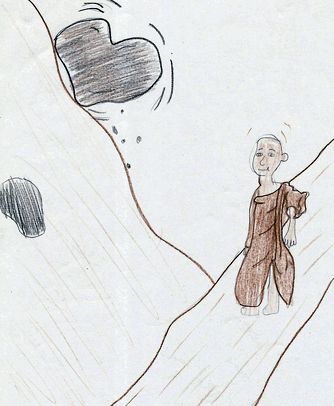
When the Buddha passed below, he pushed the boulder down the hillside at him.
Drawing by Kathleen Norman, Earl Warren College (UCSD), Class of 2010, by permission

King Ēshé-shì selected his greatest archers, for he was very eager to be sure that they would be able to target the Buddha accurately and kill him so that Ēshé-shì's friend Típó-dáduō's order would be secure and would exceed that of the Buddha himself.
But when the archers moved into position for their attack, they were so moved by the Buddha's remarkable presence and especially by the Buddha's great compassion (cíbēi 慈悲) for all creatures (including for marauding archers) that they confessed their plot, asked his forgiveness, and became his followers.
Típó-dáduō realized that he could not depend upon others to kill the Buddha, so he determined to do the deed himself. Típó-dáduō began to keep watch on the Buddha so that he could learn his habits and how best to find him alone and vulnerable.
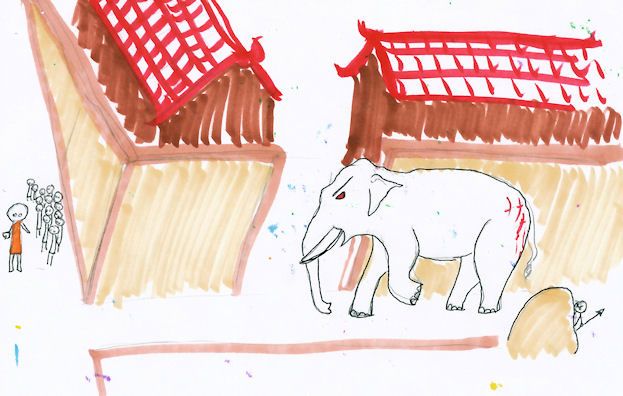
He learned that it was the custom of the Buddha to walk in the Qíshé-kū 耆阇窟 hills, and in some places rocks overhung the path on which he walked. One evening Típó-dáduō waited behind a loose bolder on the hillside where it towered over the path, and when the Buddha passed below, he pushed the boulder down the hillside at him.
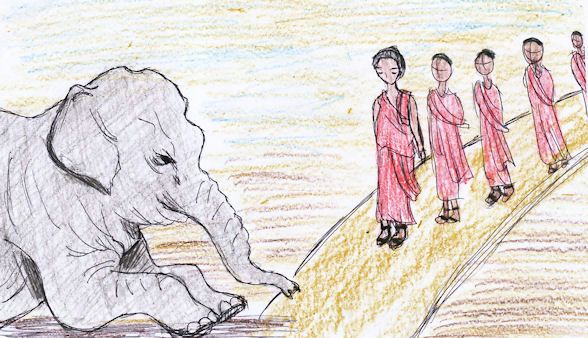
The boulder rolled down the hill, and it should have crushed him. However, suddenly it disintegrated into small pebbles. One pebble had a sharp broken edge, and it struck the Buddha's foot, and drew blood, but it was the only stone to strike him.
When he returned to the hermitage the wound was easily tended by a doctor named Qípó 耆婆, and quickly healed. And the Buddha went on with his routines, as though he had no idea he had even been attacked.
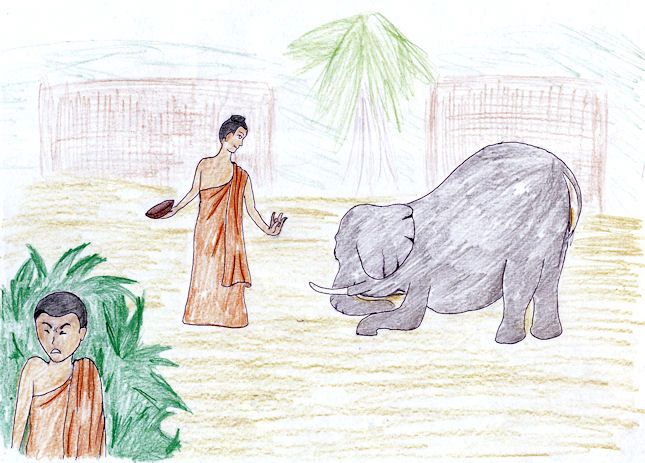
After this failure, Típó-dáduō became more determined than ever.
He knew that the Buddha would go begging in the town of Wángshè, and he arranged that a raging elephant would be loosed in his path. The elephant was named Nuólā-jílǐ 那拉吉里, and it was known for its bad temper and ferocity.
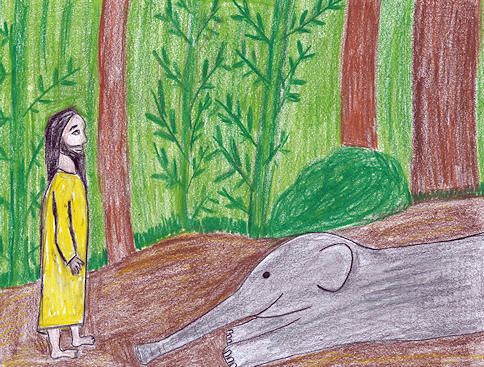
The Buddha passed without harm, not even seeming to have noticed.
Drawing by Alina Marcus, Thurgood Marshall College (UCSD), Class of 2009, by permission
As the Buddha approached, Típó-dáduō saw to it that Nuólā-jílǐ was prodded and provoked and made very angry. Nuólā-jílǐ then was released just as the Buddha came into sight, and in great rage Nuólā-jílǐ charged at the Buddha.
But when Nuólā-jílǐ came into the presence of the Buddha, the elephant suddenly became very calm, and simply bowed respectfully before him, and the Buddha passed without harm, not even seeming to have noticed.